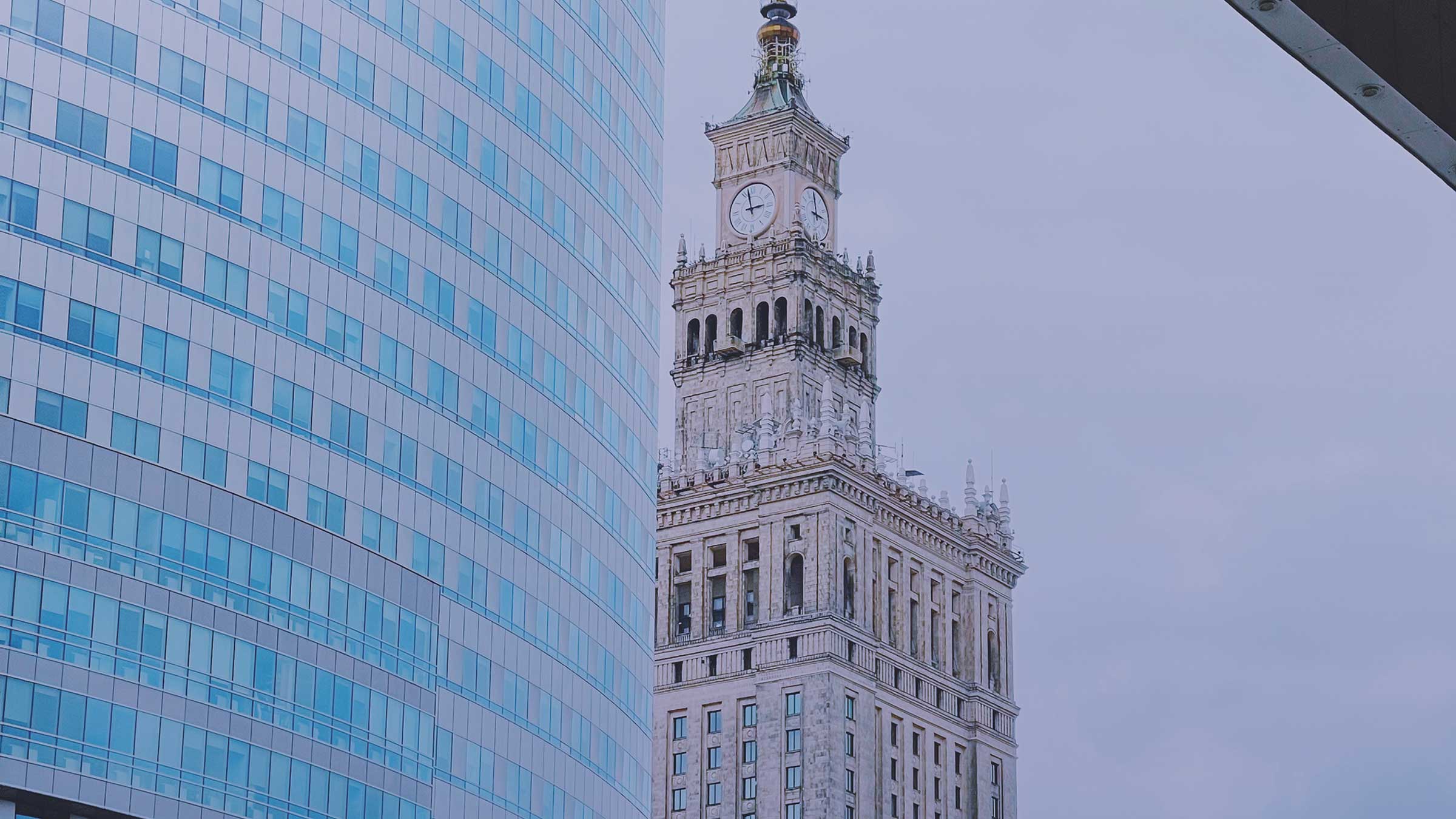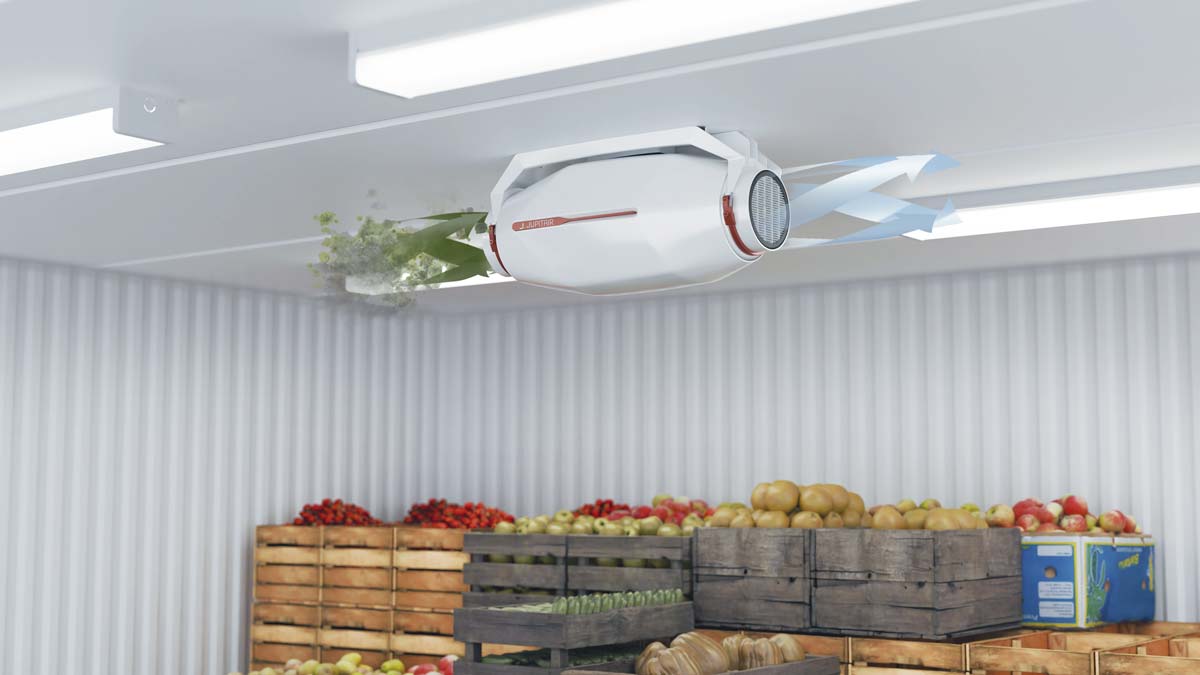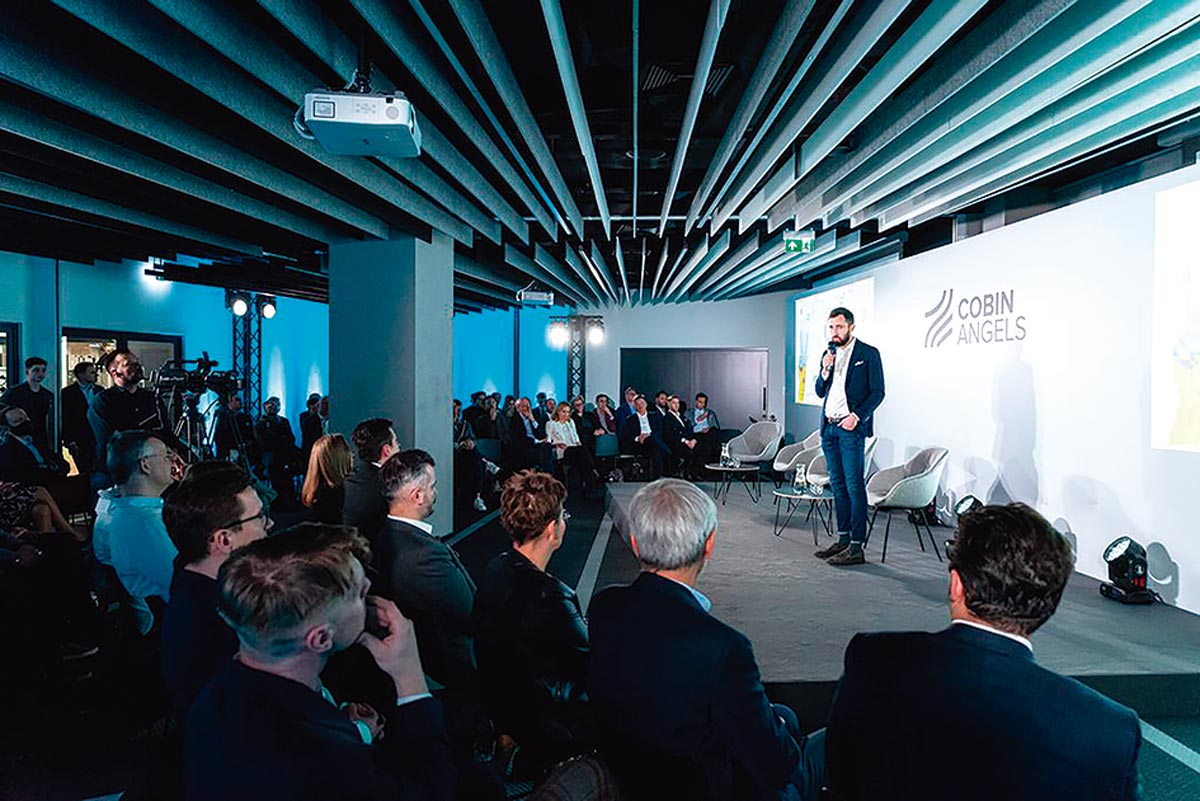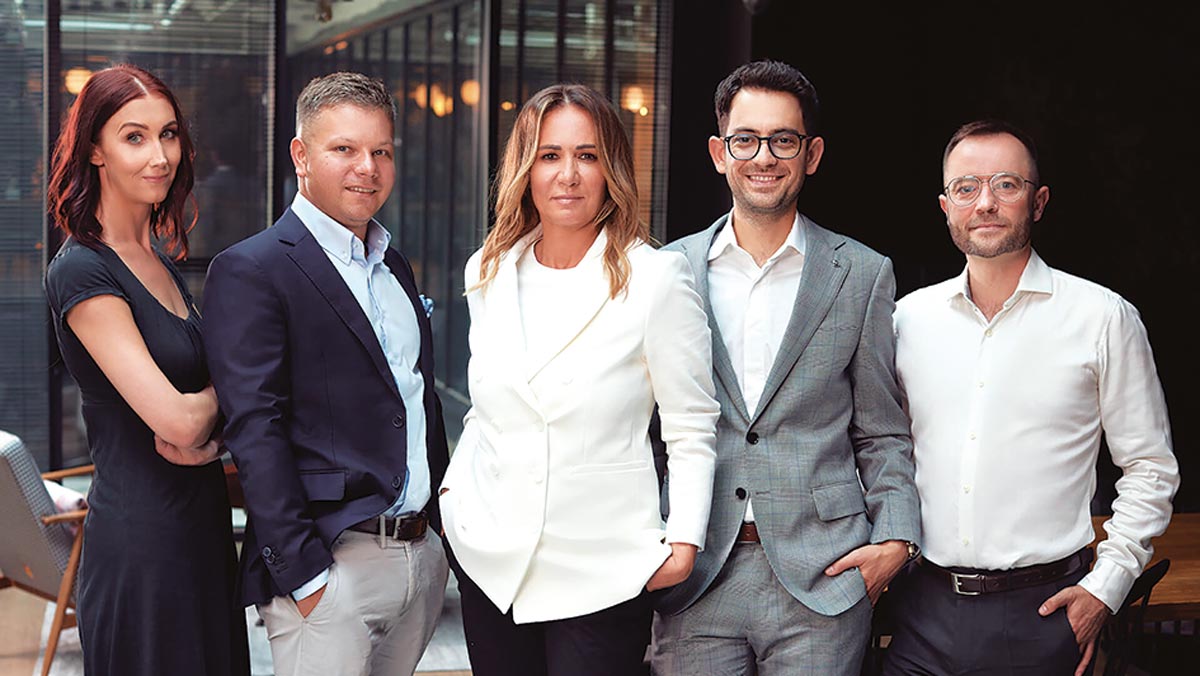
Warsaw
Poland
Its meticulously reconstructed Old Town is Western Europe’s largest post-war restoration and a UNESCO World Heritage Site. The city was almost completely destroyed in World War II, with more than 85% of its buildings in World War II, but it rose again through the coordinated efforts of the Warsaw Reconstruction Office, volunteers and nationwide donations.
Warsaw is not only Poland’s capital but also its largest city with 1.86 million inhabitants. Eurostat reports a metro GDP of €137 billion (~$153 billion) in 2023, or €42,000 (~$47,000) per capita. It is classified as an Alpha global city, meaning it is fully integrated into the global economy via financial markets, corporate networks and cultural institutions. This ranking places it alongside other major capitals such as Madrid and Amsterdam, emphasizing its role as Poland’s preeminent political, economic and cultural hub.
A leading startup ecosystem
Warsaw is the heart of Poland's tech innovation. The Polish VC Market Outlook showed that the country’s 142 startups raised nearly €500 million (~$558 million) in 2024. Major rounds included ICEYE (€90 million Series E) and ElevenLabs (€80 million Series B). According to Startup Genome, Warsaw attracted $161 million in early-stage funding (Seed and Series A) between mid‑2022 and 2024, and its current ecosystem valuation stands at $3.2 billion. The city has also recorded $1 billion in startup exits from 2020 to 2024, highlighting real liquidity for founders. StartupBlink (2025) ranks it the 7th most founder-preferred ecosystem in Eastern Europe.
Infrastructure and connectivity
Warsaw offers a well-integrated, multimodal transport network that includes trams, buses and the metro, which served approximately 197 million riders in 2024 across two metro lines and 39 stations. In 2024, local authorities allocated PLN 56 million ($15 million) for early-stage planning of a fourth metro line. A new 452 m pedestrian‑cycling bridge across the Vistula River further strengthens eco-friendly connectivity. The city has also introduced a Low Emission Zone covering 37 km², targeting older petrol and diesel vehicles in an effort to reduce urban pollution. These developments improve support for sustainable urban growth: an essential feature for startups, employees and residents.
Education, research and support infrastructure
Warsaw is a major educational and research hub, home to 60+ higher-education institutions and educating approximately 255,000 to 280,000 students annually, surpassing Berlin and Prague in student density. The University of Warsaw (established in 1816) has 25 faculties and enrolls approximately 36,500 students. It also runs Poland’s oldest technology transfer center, generating spinoffs such as Warsaw Genomics. The Warsaw University of Technology, with about 21,000 students across 18 engineering faculties, leads in technical education and regularly supports prototyping and spin-off initiatives through structured industry collaborations . Rounding out the public sector are the Medical University of Warsaw, Warsaw School of Economics, University of Life Sciences, Chopin University of Music, the War Studies University, and the Academy of Physical Education.
Startups and innovators are supported by public and private institutions such as the Polish Agency for Enterprise Development (PARP), the Warsaw Chamber of Commerce and incubators such as the Centrum Przedsiębiorczości Smolna, which stands out for its strategic location near Warsaw's Old Town and its integration with municipal programs, offering hands-on guidance for early-stage founders, and the CIC Innovation Campus at Varso Place, which regularly convening hundreds of investors and founders, and housing organizations like Venture Café Warsaw. The second public-embedded incubator is the Centre of Creativity Targowa, which is dedicated especially to the creative sector, startups and young entrepreneurs and located in Warsaw's Praga district. These resources empower both local founders and international entrepreneurs to build, scale and compete regionally and globally.
Quality of life and cultural richness
Warsaw’s culture-rich landscape is supported by a robust tourism sector. Statistics Poland reported that in the first quarter of 2024, Warsaw welcomed over 7.1 million visitors, marking 17.4 million overnight stays, an increase of 2.4% and 10% respectively compared to the previous year.
The city also offers an impressive array of cultural institutions: 70 museums, 40 art galleries, 40 theatres and music venues, and 25 cinemas, supported by 200 libraries and 2,000 historical monuments. Cultural icons include the Frédéric Chopin Museum and statue in Łazienki Park, where free summer recitals are held, and the Maria Skłodowska-Curie Museum, located in the original childhood home of the scientist known for her groundbreaking research on radioactivity. In addition there are the Warsaw Uprising Museum, the Museum of Modern Art (which opened a new flagship location in 2024), the National Museum, the Zachęta Gallery, the Royal Łazienki Museum, Wilanów Palace and Fotoplastikon, Europe’s oldest stereoscopic theatre which dates back to 1905.
The cultural scene is complemented by extensive green zones such as Łazienki Park, Wilanów Gardens and the Vistula floodplain park system, along with 500 km (311 mi) of dedicated bike lanes and numerous urban beaches. There are also car-free zones, reinforcing Warsaw’s commitment to balanced urban living and sustainability.
Facts and Figures
Poland is home to over 300 coworking spaces and more than 210 venture capital firms offering extensive infrastructure for innovation and funding (Statista, 2023).
In spring 2023, Warsaw’s Tourist Lines carried more than 210,000 passengers, surpassing the previous year’s ridership by more than 60,000 (Tourism in Warsaw Report, 2023).
Warsaw is the only European capital through which a wild river still flows: the Vistula river retains a largely unregulated riverbed for parts of its route, allowing it to shape its shores naturally.
The National Museum in Warsaw holds over 780,000 items, including Europe’s largest collection of Nubian Christian art.
Startups


Aptamedica is redefining personalized medicine with real-time, point-of-care drug monitoring and AI-powered diagnostics. It combats antibiotic resistance and improves patient safety by providing doctors with fast, precise data. The platform supports tailored treatments across antibiotics, critical care and chronic-disease management.


ElevenLabs is an AI-audio company creating lifelike, context-aware voice technology in more than 30 languages. The platform powers everything from audiobooks and video games to accessibility tools and multilingual media localization. With a focus on safe deployment, it aims to make content universally accessible.


NanoSci pioneers patented photocatalytic technology that purifies air without filters. Its solutions reduce food waste in logistics, enhance energy-efficient ventilation in housing and advance clean fuels, delivering scalable impact across foodtech, proptech and cleantech.


RIFFSEC is a cyber-threat intelligence platform that protects brands and customers across Europe. It detects phishing up to 72 hours before and attack, identifies data leaks and flags vulnerabilities, and helps organizations stay ahead of threats.


Semirobotics developed FIDI, a smart feeding robot designed to support people with limited mobility during meals. Equipped with a 3D camera, AI and adaptive cutlery, FIDI adjusts to the user's posture and eating pace and promotes greater independence and dignity in everyday life.


WaterSense develops advanced, autonomous water-monitoring stations equipped with lab-grade sensors for real-time analysis. The compact, solar-powered devices track water and air quality with long-term autonomy and LTE+GPS connectivity, promoting sustainable water management in urban, rural and industrial environments.


The inStreamly platform connects brands with streamers through automated, scalable micro-sponsorships. By enabling streamers to monetize their content and helping brands reach engaged audiences in real time, it creates a win-win model for creators and advertisers in the live-streaming space.
Interviews

When Agnieszka Maciejowska moved to Warsaw from her hometown of Lublin in 2006, she wasn’t planning to build startups let alone to exit two. But after leaving her corporate career during the 2008 financial crisis, she launched what became one of Poland’s earliest event-tech platforms, often dubbed the local version of Eventbrite.

Kacper Kossowski and Marcin Koziorowski didn’t plan to become cofounders, but a seaside fishing trip and a shared frustration with waste in the coffee industry set them on a path that would lead to the creation of Ecobean, a startup transforming coffee grounds into valuable compounds.
Programs to know about
Early-stage Polish and international startups (up to five years old) developing innovative, scalable technologies
Poland Booster is an equity-free six-month acceleration program run by Startup Hub Poland and funded by the Polish government and the EU. Participants receive non-refundable grants, expert mentorship and tailored support across five possible acceleration tracks.

Early-stage startups based in the Mazovia region
Startuj z Mazowsza is a regional startup program backed by the Mazovian government. It aims to accelerate the growth of early-stage ventures across three core categories: INNO-TECH, SOCIAL IMPACT and START. The initiative provides financial support, media visibility and direct access to investors and experts.

Early-stage ventures aligned with the UN Sustainable Development Goals
Startup Booster for Social Impact, an acceleration program led by SWPS University in Warsaw, offers development support across three tailored tracks. Participants also gain access to expert mentorship and a strong network to help scale innovative projects with measurable social or environmental outcomes.

Early- to growth-stage startups working on scalable, impact-driven solutions
Warsaw Booster is the City of Warsaw’s flagship startup accelerator, designed to support high-potential startups through mentoring, workshops, and pilot collaborations with corporates and municipal companies. The program emphasizes sustainable innovation and climate-focused solutions, helping participants refine, test and scale their ideas.

Funding Opportunities


COBIN Angels is one of Poland’s leading angel investor networks, connecting high-potential startups with experienced private investors and business leaders. The organization plays a key role in developing the early-stage innovation ecosystem in Central and Eastern Europe.


Pucek Investors, founded by Bartek Pucek, is an early-stage fund known for speed and flexibility. With founder-friendly terms, co-investments alongside leading global funds and 48-hour decisions, it supports ambitious startups from first check to syndicate-scale funding.


Tangent Line VC invests in high-impact startups across industrial technology, new materials, robotics, biotech, environmental tech and digital solutions. It supports ventures with a long-term, partnership-driven approach and has backed over 30 ventures in seven years.


Warsaw Equity Group has supported the city ecosystem for over 20 years, investing in growth-stage companies to scale up and increase market value. It embraces risk and pushes entrepreneurs beyond their comfort zone.
Urban Impact Solutions
Gruba Kaśka, one of many systems for monitoring contaminated water in the capital, is Europe’s largest infiltration well and a crucial part of Warsaw’s water infrastructure. It is also globally unique due to its cutting-edge biological monitoring system. Eight freshwater mussels fitted with tiny sensors act as living biosensors, reflecting changes in water purity. If pollutants such as heavy metals, pesticides or pharmaceuticals are detected, the mussels close their shells, with a certain amount of closure triggering an automatic alarm for further water testing. This offers real-time, continuous monitoring that is faster, more cost-effective and less energy-intensive than conventional lab testing. From an urban impact perspective, Gruba Kaśka embodies how cities can integrate nature-based technologies into public services.

Warsaw is the first European city to adopt comprehensive ethical guidelines for the use of generative artificial intelligence in municipal governance. The project was developed in collaboration with eight municipal departments and external partners, including SWPS University, EGO S.C. and the Center for Ethics of Technology at the Humanities Institute, and operates under the patronage of Poland's Ministry of Digital Affairs. It outlines seven core principles: AI as a supportive tool (not a replacement), human accountability, risk evaluation, data protection, transparency and ongoing education. Conceived as a living document, the framework is designed to evolve with emerging technologies and policies.

Warsaw’s AI-Powered Tree Map is one of Europe’s most advanced green infrastructure tools, mapping over 7.1 million individual tree crowns across 165 km². Created with MGGP Aero, a company that provides aerial survey and satellite data, it uses remote sensing, laser scanning, and hyperspectral and thermal imaging to monitor tree species locations, canopy size and health indicators such as drought stress or soil degradation. The data is used by planners, ecologists and citizens, and feeds into Warsaw’s Solar Atlas for rooftop energy planning. Unlike crowd-sourced models, it enables precise, automated updates and early intervention for stressed urban greenery.


